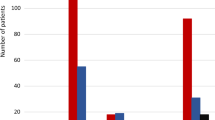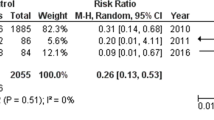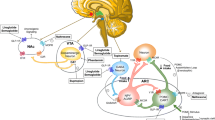Abstract
The highly selective serotonin 5-HT4 receptor agonist prucalopride (Resolor®, Resotran®, Resotrans®) is indicated for the treatment of chronic constipation. In four randomized, double-blind, multicentre, 12-week trials in patients (predominantly women) with chronic constipation, oral prucalopride 2 mg once daily improved bowel function to a significantly greater extent than placebo, with a significantly greater proportion of prucalopride than placebo recipients achieving an average of ≥3 spontaneous, complete bowel movements per week (primary endpoint). Significantly greater improvements in health-related quality of life, patient satisfaction with treatment and bowel habit, and a range of constipation-related symptoms were also seen with prucalopride than with placebo. Satisfaction with treatment and bowel habit was maintained with prucalopride in the longer term. Prucalopride was generally well tolerated in patients with chronic constipation, with the most commonly reported adverse events (headache, nausea, abdominal pain, diarrhoea) primarily occurring on the first day of treatment. During the clinical trials, no cardiovascular safety issues have arisen in patients with chronic constipation receiving prucalopride. In conclusion, prucalopride is an important option for use in patients with chronic constipation who have not experienced adequate relief with laxatives.

Similar content being viewed by others
References
Tack J, Müller-Lissner S, Stanghellini V, et al. Diagnosis and treatment of chronic constipation: a European perspective. Neurogastroenterol Motil. 2011;23(8):697–710.
Wong BS, Manabe N, Camilleri M. Role of prucalopride, a serotonin (5-HT4) receptor agonist, for the treatment of chronic constipation. Clin Exp Gastroentrol. 2010;3:49–56.
Quigley EMM. Prucalopride: safety, efficacy and potential applications. Ther Adv Gastroenterol. 2012;5(1):23–30.
Longstreth GF, Thompson WG, Chey WD, et al. Functional bowel disorders. Gastroenterology. 2006;130(5):1480–91.
Liu LWC. Chronic constipation: current treatment options. Can J Gastroenterol. 2011;25 Suppl B:22B–8B.
European Medicines Agency. Resolor (prucalopride) film-coated tablets: EU summary of product characteristics. 2013. http://www.ema.europa.eu/docs/en_GB/document_library/EPAR_-_Product_Information/human/001012/WC500053998.pdf (Accessed 8 Oct 2013).
Emmanuel AV, Kamm MA, Roy AJ, et al. Effect of a novel prokinetic drug, R093877, on gastrointestinal transit in healthy volunteers. Gut. 1998;42(4):511–6.
Poen AC, Felt-Bersma RJF, Van Dongen PAM, et al. Effect of prucalopride, a new enterokinetic agent, on gastrointestinal transit and anorectal function in healthy volunteers. Aliment Pharmacol Ther. 1999;13(11):1493–7.
Bouras EP, Camilleri M, Burton DD, et al. Selective stimulation of colonic transit by the benzofuran 5HT4 agonist, prucalopride, in healthy humans. Gut. 1999;44(5):682–6.
De Schryver AMP, Andriesse GI, Samsom M, et al. The effects of the specific 5HT4 receptor agonist, prucalopride, on colonic motility in healthy volunteers. Aliment Pharmacol Ther. 2002;16(3):603–12.
Kessing BF, Smout AJ, Bennink RJ, et al. Prucalopride decreases esophageal acid exposure and accelerates gastric emptying in healthy subjects [abstract no. 745]. Gastroenterology. 2013;144(5 Suppl 1):S134.
Boyce MJ, Kerstens R, Beyens G, et al. Cardiovascular safety of prucalopride in healthy subjects: results from two randomized, double-blind, placebo-controlled, cross-over trials [abstract no. T1265]. Gastroenterology. 2009;136(5 Suppl 1):A535.
Mendzelevski B, Ausma J, Chanter DO, et al. Assessment of the cardiac safety of prucalopride in healthy volunteers: a randomized, double-blind, placebo- and positive-controlled thorough QT study. Br J Clin Pharmacol. 2012;73(2):203–9.
Coremans G, Kerstens R, De Pauw M, et al. Prucalopride is effective in patients with severe chronic constipation in whom laxatives fail to provide adequate relief: results of a double-blind, placebo-controlled clinical trial. Digestion. 2003;67(1–2):82–9.
Bouras EP, Camilleri M, Burton DD, et al. Prucalopride accelerates gastrointestinal and colonic transit in patients with constipation without a rectal evacuation disorder. Gastroenterology. 2001;120(2):354–60.
Sloots CEJ, Poen AC, Kerstens R, et al. Effects of prucalopride on colonic transit, anorectal function and bowel habits in patients with chronic constipation. Aliment Pharmacol Ther. 2002;16(4):759–67.
Emmanuel AV, Roy AJ, Nicholls TJ, et al. Prucalopride, a systemic enterokinetic, for the treatment of constipation. Aliment Pharmacol Ther. 2002;16(7):1347–56.
Emmanuel AV, Kerstens R, Vandeplassche LM. Prucalopride improves bowel function and colonic transit time in patients with constipation [abstract no. Mo1326]. Gastroenterology. 2011;140(5 Suppl 1):S612.
Briejer MR, Bosmans J-P, Van Daele P, et al. The in vitro pharmacological profile of prucalopride, a novel enterokinetic compound. Eur J Pharmacol. 2001;423(1):71–83.
De Maeyer JH, Lefebvre RA, Schuurkes JAJ. 5-HT4 receptor agonists: similar but not the same. Neurogastroenterol Motil. 2008;20(2):99–112.
Mader R, Kocher T, Haier J, et al. Investigation of serotonin type 4 receptor expression in human and non-human primate gastrointestinal samples. Eur J Gastroenterol Hepatol. 2006;18(9):945–50.
Prins NH, Akkermans LM, Lefebvre RA, et al. 5-HT4 receptors on cholinergic nerves involved in contractility of canine and human large intestine longitudinal muscle. Br J Pharmacol. 2000;131(5):927–32.
Prins NH, Shankley NP, Welsh NJ, et al. An improved in vitro bioassay for the study of 5-HT4 receptors in the human isolated large intestinal circular muscle. Br J Pharmacol. 2000;129(8):1601–8.
Prins NH, Van Haselen JFWR, Lefebvre RA, et al. Pharmacological characterization of 5-HT4 receptors mediating relaxation of canine isolated rectum circular smooth muscle. Br J Pharmacol. 1999;127(6):1431–7.
Briejer MR, Prins NH, Schuurkes JAJ. Effects of the enterokinetic prucalopride (R093877) on colonic motility in fasted dogs. Neurogastroenterol Motil. 2001;13(5):465–72.
Chapman H, Pasternack M. The action of the novel gastrointestinal prokinetic prucalopride on the HERG K+ channel and the common T897 polymorph. Eur J Pharmacol. 2007;554(2–3):98–105.
Potet F, Bouyssou T, Escande D, et al. Gastrointestinal prokinetic drugs have different affinity for the human cardiac human ether-à-gogo K+ channel. J Pharmacol Exp Ther. 2001;299(3):1007–12.
European Medicines Agency. Resolor (prucalopride): EU public assessment report. 2009. http://www.ema.europa.eu/docs/en_GB/document_library/EPAR_-_Public_assessment_report/human/001012/WC500053997.pdf (Accessed 8 Oct 2013).
Pau D, Workman AJ, Kane KA, et al. Electrophysiological effects of prucalopride, a novel enterokinetic agent, on isolated atrial myocytes from patients treated with β-adrenoceptor antagonists. J Pharmacol Exp Ther. 2005;313(1):146–53.
Krobert KA, Brattelid T, Levy FO, et al. Prucalopride is a partial agonist through human and porcine atrial 5-HT4 receptors: comparison with recombinant human 5-HT4 splice variants. Naunyn Schmiedebergs Arch Pharmacol. 2005;371(6):473–9.
De Maeyer JH, Schuurkes JAJ, Lefebvre RA. Selective desensitization of the 5-HT4 receptor-mediated response in pig atrium but not in stomach. Br J Pharmacol. 2009;156(2):362–76.
De Maeyer JH, Straetemans R, Schuurkes JAJ, et al. Porcine left atrial and sinoatrial 5-HT4 receptor-induced responses: fading of the response and influence of development. Br J Pharmacol. 2006;147(2):140–57.
Van de Velde VJ, Ausma J, Vandeplassche L. I.V. kinetics and absolute oral bioavailability of prucalopride [abstract no. S1331]. Gastroenterology. 2010;138(5 Suppl 1):S230.
Van de Velde VJ, Ausma J, Vandeplassche L. Food does not affect the oral bioavailability of prucalopride [abstract no. T1270]. Gastroenterology. 2009;136(5 Suppl 1):A536.
Van de Velde VJ, Ausma J, Vandeplassche L. Comparative pharmacokinetics of prucalopride in healthy young and elderly subjects [abstract no. S1330]. Gastroenterology. 2010;138(5 Suppl 1):S230.
Chen X, Jiang J, Liu T, et al. Pharmacokinetics of single and repeated oral doses of prucalopride in healthy Chinese volunteers. Int J Clin Pharmacol Ther. 2012;50(11):797–804.
Janssen-Cilag Pty Ltd. Resotrans™ (prucalopride) tablets: Australian prescribing information. 2011. https://www.ebs.tga.gov.au (Accessed 8 Oct 2013).
Janssen Inc. Resotran™ (prucalopride) tablets: Canadian prescribing information. 2012. http://www.hc-sc.gc.ca (Accessed 8 Oct 2013).
Winter HS, Di Lorenzo C, Benninga MA, et al. Oral prucalopride in children with functional constipation. J Pediatr Gastroenterol Nutr. 2013;57(2):197–203.
Smith WB, Mannaert E, Verhaeghe T, et al. Effect of renal impairment on the pharmacokinetics of prucalopride: a single-dose open-label phase I study. Drug Des Dev Ther. 2012;6:407–15.
Van de Velde V, Vandeplassche L, Hoppenbrouwers M, et al. Effect of prucalopride on the pharmacokinetics of oral contraceptives in healthy women. Drugs R D. 2013;13(1):43–51.
Camilleri M, Kerstens R, Rykx A, et al. A placebo-controlled trial of prucalopride for severe chronic constipation. N Engl J Med. 2008;358(22):2344–54.
Quigley EMM, Vandeplassche L, Kerstens R, et al. Clinical trial: the efficacy, impact on quality of life, and safety and tolerability of prucalopride in severe chronic constipation—a 12-week, randomized, double-blind, placebo-controlled study. Aliment Pharmacol Ther. 2009;29(3):315–28.
Tack J, van Outryve M, Beyens G, et al. Prucalopride (Resolor) in the treatment of severe chronic constipation in patients dissatisfied with laxatives. Gut. 2009;58(3):357–65.
Ke M, Zou D, Yuan Y, et al. Prucalopride in the treatment of chronic constipation in patients from the Asia-Pacific region: a randomized, double-blind, placebo-controlled study. Neurogastroenterol Motil. 2012;24(11):999-e541.
Müller-Lissner S, Rykx A, Kerstens R, et al. A double-blind, placebo-controlled study of prucalopride in elderly patients with chronic constipation. Neurogastroenterol Motil. 2010;22(9):991–8, e255.
Gatta L, Kerstens R, Scarpignato C. How effective is prucalopride for the treatment of chronic constipation? A systematic review and meta-analysis [abstract no. Su2069]. Gastroenterology. 2013;144(5 Suppl 1):S547–8.
Cheng E. Efficacy of prucalopride in the treatment of chronic constipation: a systematic review and meta-analysis of randomized controlled trials [abstract]. Clin Gastroenterol Hepatol. 2012;10(3):329–30.
Tack J, Quigley E, Camilleri M, et al. Efficacy and safety of oral prucalopride in women with chronic constipation in whom laxatives have failed: an integrated analysis. United Eur Gastroenterol J. 2013;1:48–59.
Tack J, Stanghellini V, Dubois D, et al. Effect of prucalopride on symptoms of chronic constipation. Neurogastroenterol Motil. 2013;. doi:10.1111/nmo.12217.
Ke MY, Zou DW, Yuan YZ, et al. Treatment with prucalopride for chronic constipation improves the symptoms and quality of life of patients in China [abstract no. PGI16]. Value Health. 2012;15(7):A637-8 plus poster presented at the International Society for Pharmacoeconomics and Outcomes Research 5th Asia-Pacific Conference; 2–4 Sep 2012; Taipei.
Stanghellini V, Vandeplassche L, Kerstens R. Best response distribution of 12-week treatment with prucalopride (Resolor) in patients with chronic constipation: combined results of three randomised, double-blind, placebo-controlled phase III trials [abstract no. PWE-075]. Gut. 2011;60 Suppl 1:A159–60.
Camilleri M, Van Outryve MJ, Beyens G, et al. Clinical trial: the efficacy of open-label prucalopride treatment in patients with chronic constipation—follow-up of patients from the pivotal studies. Aliment Pharmacol Ther. 2010;32(9):1113–23.
Cinca R, Chera D, Gruss H-J, et al. Randomised clinical trial: macrogol/PEG 3350 + electrolytes versus prucalopride in the treatment of chronic constipation: a comparison in a controlled environment. Aliment Pharmacol Ther. 2013;37(9):876–86.
Camilleri M, Beyens G, Kerstens R, et al. Safety assessment of prucalopride in elderly patients with constipation: a double-blind, placebo-controlled study. Neurogastroenterol Motil. 2009;21(12):1256–63, e117.
Movetis. Movetis receives authorisation to market Resolor® in Switzerland [media release]; 2010. http://www.movetis.com (Accessed 8 Oct 2013).
Lacy BE, Levenick JM, Crowell M. Chronic constipation: new diagnostic and treatment approaches. Ther Adv Gastroenterol. 2012;5(4):233–47.
Lindberg G, Hamid SS, Malfertheiner P, et al. World Gastroenterology Organisation global guideline: constipation—a global perspective. J Clin Gastroenterol. 2011;45(6):483–7.
Bove A, Bellini M, Battaglia E, et al. Consensus statement AIGO/SICCR diagnosis and treatment of chronic constipation and obstructed defecation (part II: treatment). World J Gastroenterol. 2012;18(36):4994–5013.
Portalatin M, Winstead N. Medical management of constipation. Clin Colon Rectal Surg. 2012;25(1):12–9.
Herring C. Prucalopride. Clin Pharmacist. 2011;3(2):55–7.
Shire Development LLC. Evaluation of prucalopride in male subjects with chronic constipation [ClinicalTrials.gov identifier NCT01147926]. US National Institutes of Health, ClinicalTrials.gov; 2013. http://www.clinicaltrials.gov/ct2/show/NCT01147926 (Accessed 8 Oct 2013).
Shire-Movetis NV. Study to investigate prucalopride vs. polyethylene glycol 3350 on colon activity [ClinicalTrials.gov identifier NCT01707667]. US National Institutes of Health, ClinicalTrials.gov; 2013. http://www.clinicaltrials.gov/ct2/show/NCT01707667 (Accessed 8 Oct 2013).
Stanghellini V, Vandeplassche LM, Kerstens R, et al. The relation between adverse events on day 1 and pharmacodynamic effects on day 1 of treatment with prucalopride [abstract no. Mo1336]. Gastroenterology. 2011;140(5 Suppl 1):S615.
Tack J, Camilleri M, Chang L, et al. Systematic review: cardiovascular safety profile of 5-HT4 agonists developed for gastrointestinal disorders. Aliment Pharmacol Ther. 2012;35(7):745–67.
Sanger GJ, Quigley EMM. Constipation, IBS and the 5-HT4 receptor: what role for prucalopride? Clin Med Insights Gastroenterol. 2010;3:21–33.
Tack J, Corsetti M. Prucalopride: evaluation of the pharmacokinetics, pharmacodynamics, efficacy and safety in the treatment of chronic constipation. Expert Opin Drug Metab Toxicol. 2012;8(10):1327–35.
Redfern WS, Carlsson L, Davis AS, et al. Relationships between preclinical cardiac electrophysiology, clinical QT interval prolongation and torsade de pointes for a broad range of drugs: evidence for a provisional safety margin in drug development. Cardiovasc Res. 2003;58(1):32–45.
Sloots CEJ, Rykx A, Cools M, et al. Efficacy and safety of prucalopride in patients with chronic noncancer pain suffering from opioid-induced constipation. Dig Dis Sci. 2010;55(10):2912–21.
Movetis. Prucalopride effects on subjects with chronic non-cancer pain suffering from opioid induced constipation (OIC) [ClinicalTrials.gov identifier NCT01117051]. US National Institutes of Health, ClinicalTrials.gov; 2013. http://www.clinicaltrials.gov/ct2/show/results/NCT01117051 (Accessed 8 Oct 2013).
Emmanuel AV, Kamm MA, Roy AJ, et al. Randomised clinical trial: the efficacy of prucalopride in patients with chronic intestinal pseudo-obstruction—a double-blind, placebo-controlled, cross-over, multiple n = 1 study. Aliment Pharmacol Ther. 2012;35(1):48–55.
Disclosure
The preparation of this review was not supported by any external funding. During the peer review process, the manufacturer of the agent under review was offered an opportunity to comment on this article. Changes resulting from comments received were made by the author on the basis of scientific and editorial merit.
Author information
Authors and Affiliations
Corresponding author
Additional information
The manuscript was reviewed by: S.A. Müller-Lissner, Department of Internal Medicine, Park-Klinik Weissensee, Berlin, Germany; E.M.M. Quigley, Alimentary Pharmabiotic Centre, University College Cork, Cork, Ireland; C. Scarpignato, Clinical Pharmacology & Digestive Pathophysiology Unit, Department of Clinical & Experimental Medicine, University of Parma, Parma, Italy; M. Simrén, Department of Internal Medicine & Clinical Nutrition, Institute of Medicine, Sahlgrenska Academy, University of Gothenburg, Gothenburg, Sweden; V. Stanghellini, Department of Digestive Diseases and Internal Medicine, University of Bologna, St Orsola-Malpighi Hospital, Bologna, Italy.
Rights and permissions
About this article
Cite this article
Keating, G.M. Prucalopride: A Review of Its Use in the Management of Chronic Constipation. Drugs 73, 1935–1950 (2013). https://doi.org/10.1007/s40265-013-0140-1
Published:
Issue Date:
DOI: https://doi.org/10.1007/s40265-013-0140-1




